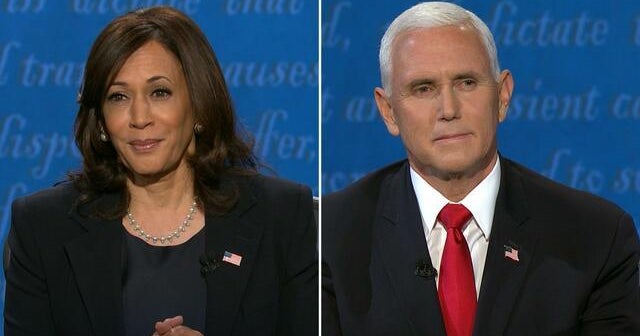Key Moments and Talking Points

The vice presidential debate provided a platform for the candidates to present their visions for the country and to engage in a spirited exchange of ideas on critical issues. The debate offered insights into the candidates’ policy positions, communication styles, and overall readiness for the challenges of the office.
The Economy and Job Creation
The candidates’ contrasting approaches to economic policy were evident throughout the debate. One candidate emphasized the importance of tax cuts and deregulation to stimulate economic growth, arguing that these policies would create jobs and boost the economy. The other candidate, however, focused on investing in infrastructure, education, and clean energy, asserting that these investments would create long-term economic prosperity and address climate change.
Healthcare
Healthcare emerged as a key issue, with the candidates offering starkly different perspectives. One candidate defended the current healthcare system, highlighting its successes and arguing for incremental reforms. The other candidate advocated for a universal healthcare system, arguing that it would provide affordable and accessible care for all Americans.
Foreign Policy
The candidates’ views on foreign policy diverged on several fronts. One candidate emphasized a strong military presence and a tough stance on foreign adversaries, while the other candidate emphasized diplomacy and multilateral cooperation. They also differed on their approaches to specific foreign policy challenges, such as the ongoing conflict in the Middle East and the rise of China.
Candidates’ Performance, Cbs vice presidential debate
Both candidates demonstrated a strong command of the issues and presented their positions with clarity and conviction. One candidate adopted a more aggressive and assertive style, while the other candidate opted for a more measured and deliberative approach. Both candidates were effective in communicating their messages to the audience, though their respective styles may have resonated differently with viewers.
Audience Reception and Media Coverage: Cbs Vice Presidential Debate

The Vice Presidential debate sparked a flurry of reactions from viewers and political analysts, generating a wave of media coverage that dissected the candidates’ performances and potential impact on the election. The debate provided a platform for the candidates to showcase their policy positions, communication styles, and temperament, which resonated with different segments of the electorate.
Initial Reactions and Social Media Buzz
Social media platforms became a vibrant hub for immediate reactions and commentary on the debate. Twitter, in particular, was abuzz with opinions, memes, and trending hashtags reflecting the diverse perspectives of viewers. While some viewers praised a candidate’s strong performance, others criticized their opponent’s lackluster delivery or policy stances. The debate’s trending topics on social media platforms provided a real-time snapshot of public sentiment, revealing the key issues and moments that resonated most with the audience.
Key Themes and Narratives in Media Coverage
News outlets, political commentators, and pundits alike dissected the debate, focusing on key themes and narratives that emerged from the candidates’ exchanges.
- Policy Differences: The debate highlighted the stark policy differences between the candidates on issues such as healthcare, climate change, and the economy. Analysts examined how each candidate’s positions aligned with their respective party platforms and the broader political landscape.
- Communication Styles: The debate provided a platform for the candidates to showcase their communication styles, with some emphasizing a more aggressive approach while others opted for a more measured tone. Media coverage dissected the effectiveness of each candidate’s delivery, analyzing their body language, tone of voice, and ability to connect with viewers.
- Candidate Strengths and Weaknesses: Media coverage also focused on identifying the candidates’ strengths and weaknesses, analyzing their performance in terms of policy knowledge, debating skills, and overall likability. Analysts assessed how each candidate’s performance might resonate with specific voter demographics and influence the race’s overall trajectory.
Potential Impact on Public Opinion and Voter Sentiment
The Vice Presidential debate can influence public opinion and voter sentiment in several ways.
- Reinforce Existing Beliefs: For voters already leaning towards a particular candidate, the debate can reinforce their existing beliefs and solidify their support. A strong performance by a preferred candidate can further energize their base and motivate them to participate in the election.
- Shift Opinions and Persuade Undecided Voters: The debate can also sway undecided voters, particularly those seeking clarity on specific issues or seeking to assess the candidates’ character and temperament. A compelling performance can potentially sway these voters, potentially altering the race’s dynamics.
- Influence the Election’s Narrative: The debate can also influence the election’s overall narrative by highlighting specific issues, amplifying certain themes, and shaping public discourse. The debate’s impact on public perception can influence media coverage, voter conversations, and ultimately, the election’s outcome.
The CBS Vice Presidential debate was a tense affair, with both candidates vying for the spotlight. Just like the unpredictable nature of tropical storm Debby’s journey from a swirling storm to a powerful hurricane, the debate shifted from policy to personal attacks.
The audience was left wondering who would emerge as the victor in this political storm.
The CBS Vice Presidential debate may not be as flashy as a Super Bowl halftime show, but it certainly sparks heated discussions and passionate opinions. Just like the limited-edition McDonald’s Collectors Meals that have become coveted items among fans, the debate offers a glimpse into the candidates’ personalities and policies, fueling discussions long after the final gavel falls.
